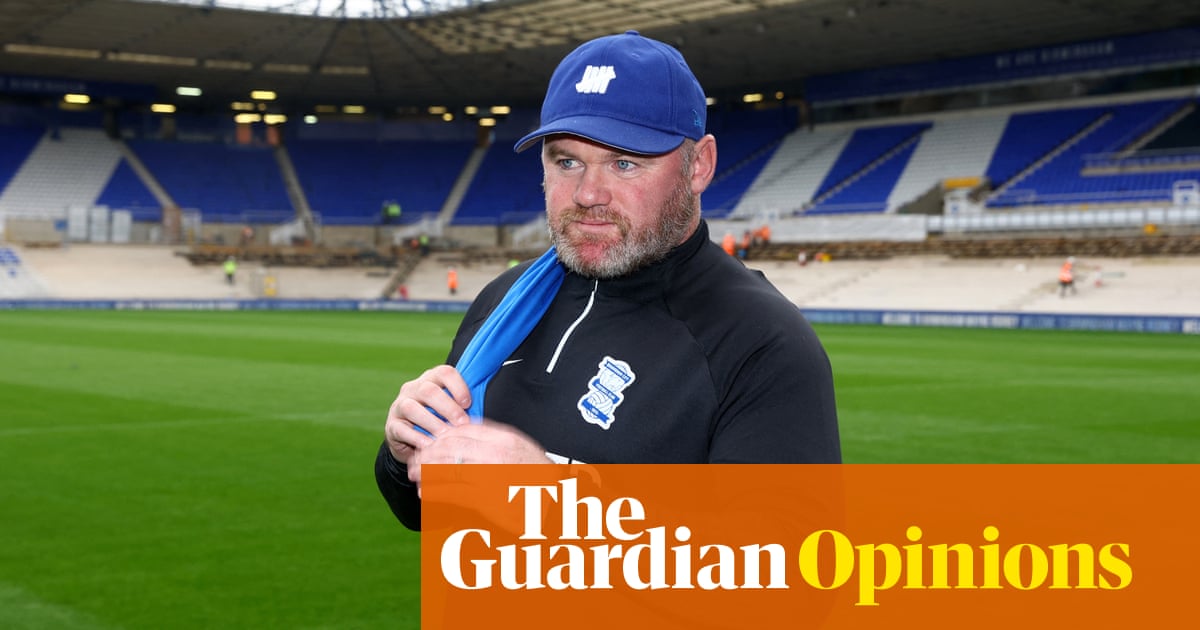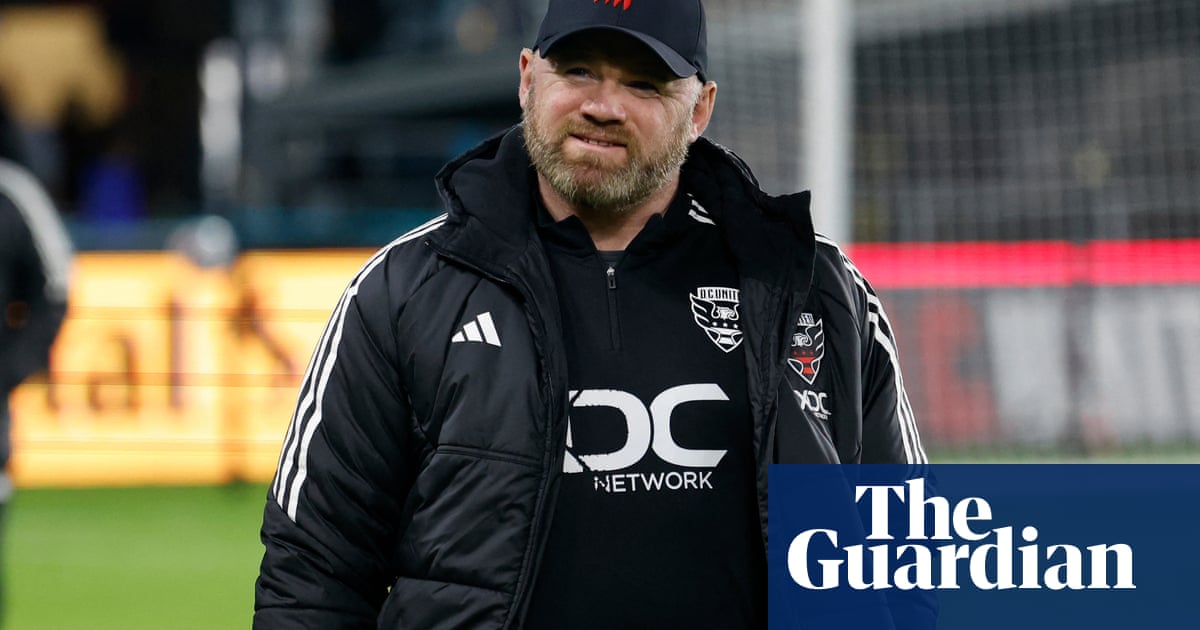
“As you go through life, it’s a long, long road, there’ll be joys and sorrows too,” begins the Birmingham chant and, as a fan of the club, I can certainly relate. Wayne Rooney was sacked as manager on Tuesday after 15 matches, having taken the club from sixth to 20th. His dismissal is understandable in a results-based business and a reminder that appointing the right person is imperative. But that doesn’t mean being so quick to get rid of him was the correct call.
Birmingham’s US owners have done excellently in some respects since taking over in the summer, doing a lot of great work behind the scenes, but replacing John Eustace, who had taken the club into the playoff positions, seemed bizarre. Clearly the owners wanted to play with a certain style and decided Rooney was the man. Naturally, someone of Rooney’s profile would also help the commercial project by attracting investment and sponsorship.
Two wins in 15 matches will be the epitaph of Rooney’s time at St Andrew’s but if the owners felt he was the man to provide “no-fear football”, as the chief executive, Garry Cook, put it, then he should have been allowed time to prosper. When you make a 180-degree change in style, you have to give a manager the players they need and a transfer window would have provided that opportunity for Rooney.
The timing of Rooney’s arrival, in October, was not ideal when a revolution was desired. Bournemouth made a similar change when they parted company with Gary O’Neil after he did fantastic work to keep the club in the Premier League but they did their research and wanted Andoni Iraola. He was afforded a pre-season with the squad and given the recruits he sought.
It did not start well, with Bournemouth failing to win any of their opening nine league games, losing six. The owner, Bill Foley, came out to say he was backing Iraola regardless of results and that is paying dividends. It is so hard as an owner or chief executive to do that when the club’s biggest asset is Premier League survival and the finances that brings. Bournemouth prioritised developing the style over immediate results, which is a brave decision.
Rooney immediately went into a difficult run of matches while trying to produce the football desired. Most of the time, a manager arrives because a team are playing poorly and need fresh impetus. It can be hard to take over a successful team and push them to the next level when the previous system was working, so that was tough for Rooney.
Nor is it not easy being an owner, especially in the Championship; it is a competitive league, there are so many matches and the financial side is really tricky. A club needs to hire someone who can be a focal point and the manager is the most important employee. To find all that and marry it into style and commercial value is complex. The person needs to appeal to the fans, who are the heart of any club, and what they represent. But when an owner makes a bold decision, it requires patience with a manager.
Consistency in life is probably the most important thing. I look at my career and the most successful managers are the ones who had time. I was with Vic Akers at Arsenal and Emma Hayes at Chelsea, both of whom were there for long spells. In the men’s game, Sir Alex Ferguson, Jürgen Klopp and Pep Guardiola required a spell to implement their methods. Admittedly, they had money to spend but the same pressures are there.
From the manager’s point of view, it is important to know whether a role is right and not accept the first opportunity presented. After Eddie Howe left Bournemouth he took a year out, went away to refresh himself, refine the basics and looked back at his notes and training videos to improve. When someone comes out of football, perhaps there is a need to jump back in, but you need to have the power to say no if the offer is not right. A person needs the confidence that something else will come along.
For Birmingham’s owners the next decision is the biggest of their tenure. The fans will stick by whoever replaces Rooney because that is what you do. There are going to be massive ups and downs but the owners have to get this right and learn from what has gone before. The manager should be the heartbeat of the team. They have to be strong and be aligned with what your organisation stands for.
I hope this is a blip and a reminder of how difficult the business is. I, like all fans, want the best for the club and the owners have shown promise. In my lifetime, Birmingham supporters have witnessed a lot, from winning the League Cup and being relegated in the same season to Gianfranco Zola’s reign and a points deduction. There’s never a dull day at St Andrew’s.
Keep right on to the end of the road.












